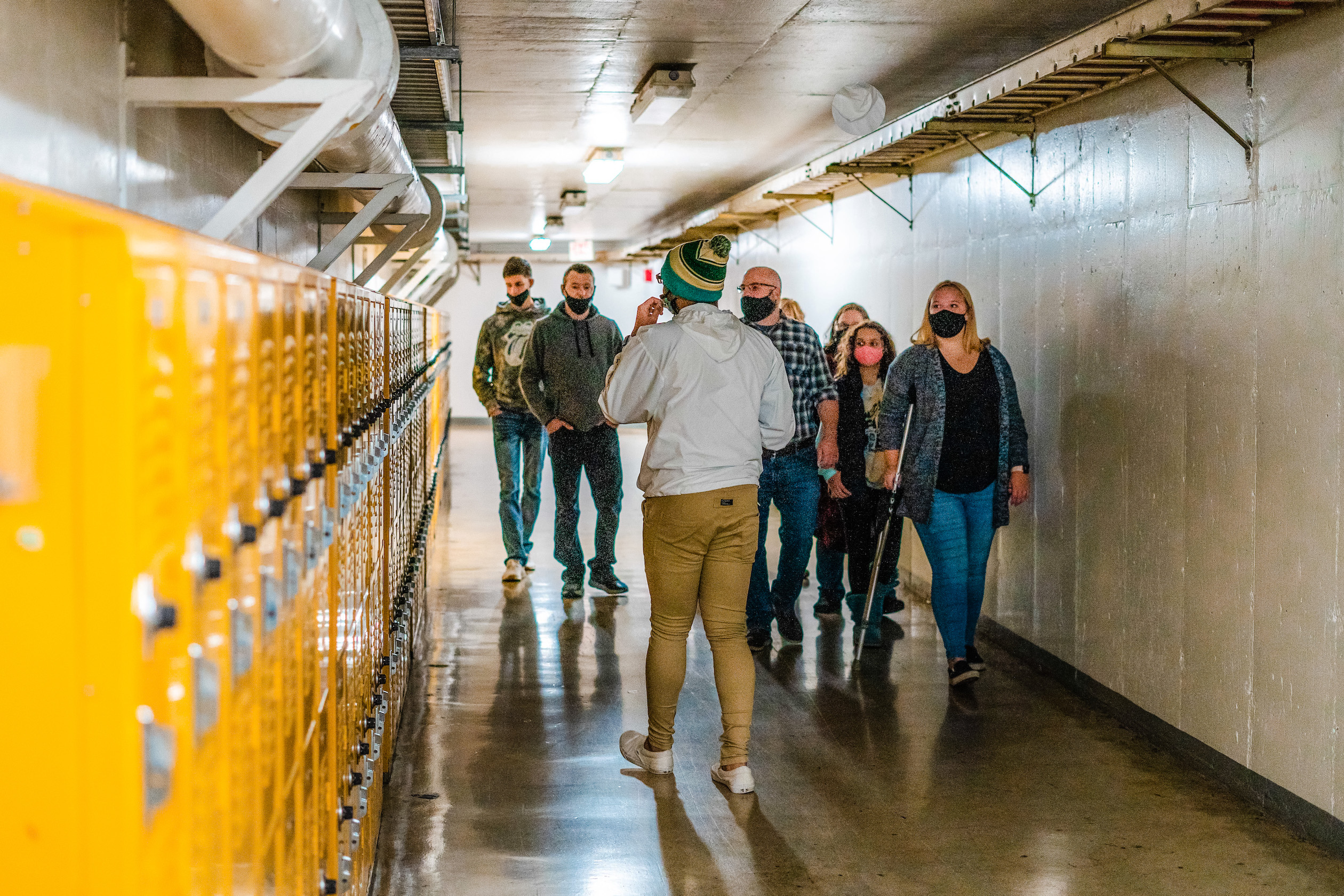
Students on Campus | Photo by Soham Parikh | The Wright State Guardian
Wright State University (WSU) informed students Thursday, Oct. 29 of a plan to expand coronavirus testing to include asymptomatic students and faculty.
“Wright State’s new pilot program for asymptomatic individuals will seek to increase the number of personnel tested to approximately 100 people a week,” said Interim Provost Dr. Douglas Leaman in a communications email Thursday.
The three-week pilot program will test the same individuals once per week, allowing for early detection amongst the high-risk population.
“Testing will be administered at the Lot 20 bus shelter adjacent to the Wright State Physicians Health Center Monday through Friday from 9 a.m. to 12 p.m.,” Leaman said.
Tests are expected to take roughly 15 minutes.
Testing of other students and faculty with a Wright State Physicians order will continue to be offered at the drive-through site Monday through Friday from 2 p.m. to 4:30 p.m.
Who makes up the 100
“The screening program will use the rapid Abbott Binax NOW COVID-19 antigen screening tests, and will include students and employees from areas of campus who have high incidence of in-person contact with others and are therefore at higher-risk of exposure to COVID-19. This specific group may include students and employees from athletics, resident assistants and professional staff from housing, those working and studying in clinical settings and others,” Leaman said.
Currently, volunteers for this pilot program are not being accepted however it is likely there will be an opportunity for those wishing to be tested once per week to volunteer their efforts during the spring semester.
Testing at other universities
In September, the University of Illinois implemented a similar, but much more aggressive strategy of testing students and faculty and have seen favorable results.
Testing 100% of their students and faculty twice a week, the university has implemented a saliva test that was developed by a university research team and is administered by way of 17 different testing facilities on the campus.
Positive cases are alerted immediately, and the quarantine process subsequently begins.
Students at the University of Illinois are also given access to an app which monitors how close they have come into contact with those individuals who have tested positive, giving them an incentive to get tested as soon as possible.
Using this method, the University of Illinois has been able to reduce the number of positive cases on campus by 65-85% over the course of just a few weeks.
Student opinion
While remaining safe and healthy has been on the forefront of student and faculty agendas throughout the course of the fall semester thus far, some students are not keen on the idea of being forced into coronavirus testing.
“I understand that the school is trying to keep track of the cases and keep the students and staff safe. I feel like it shouldn’t be mandatory though, and nobody should be forced to do it if they don’t want to. It should be your choice,” WSU Senior Tylecia Parks said.
“I just got tested last week at the hospital and came out negative, why should I be forced to test again?” Parks said.
While concerns such as those raised by Parks are real among some students at WSU, avoiding testing may not be an option.
“I think students are going to be stuck taking the test unless there is some sort of religious or medical exemption,” said WSU Student Legal Services Attorney Stephanie Allen. “I liken it to the vaccinations that you must have to live on campus. Attending Wright State is a privilege, and there are certain things you must abide by to go here.”
To remain up-to-date on all WSU coronavirus news, visit: www.wsuguardian.com/coronavirus/
